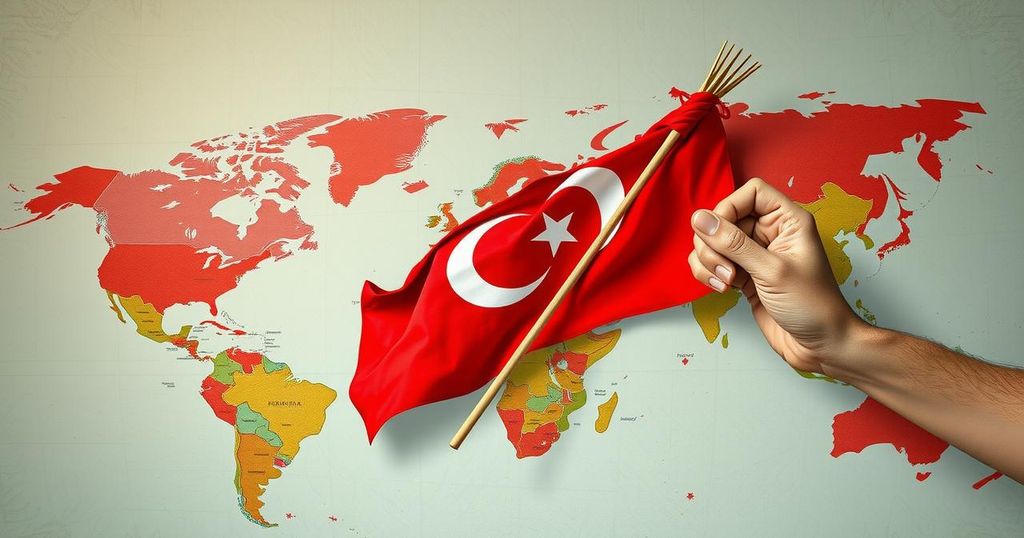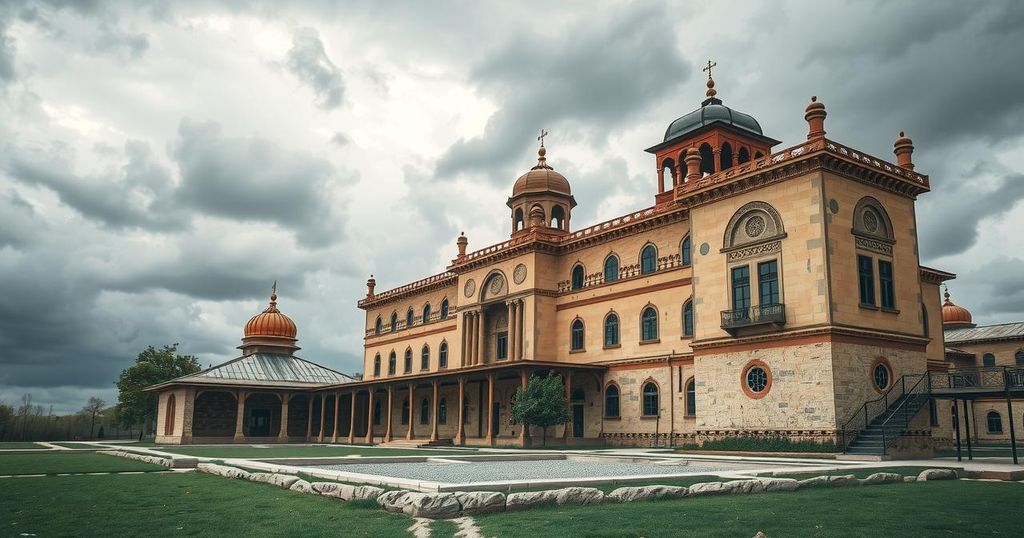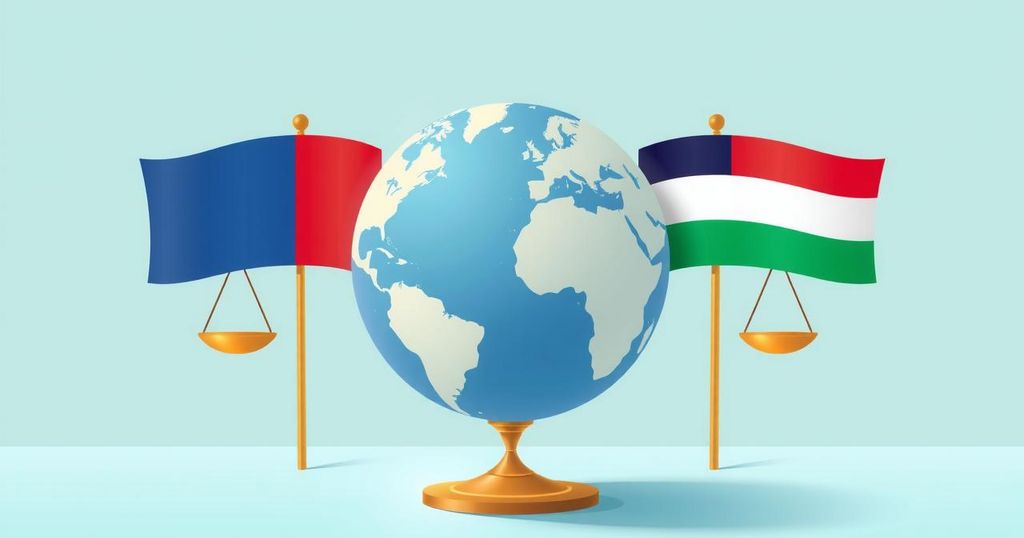Global news
AFRICA, BERBERA, BLACK SEA GRAIN INITIATIVE, CONFLICT RESOLUTION, DIPLOMACY, ECONOMIC COOPERATION, EUROPE, FI, HA, HORN OF AFRICA, INTERNATIONAL COOPERATION, NATIONAL INTELLIGENCE ORGANISATION, REC, RECEP TAYYIP ERDOĞAN, REGIONAL STABILITY, SOMALIA, TURK, TÜRKIYE, UKRAINE
Marcus Li
0 Comments
Türkiye’s Role as a Global Mediator: Enhancing Diplomatic Influence
Türkiye has significantly influenced international diplomacy by mediating the conflict between Somalia and Ethiopia, particularly regarding the Berbera Port dispute. Its proactive diplomatic approach emphasizes dialogue and cooperation, showcasing its commitment to regional stability. Türkiye’s contributions extend beyond this conflict, reflecting a broader engagement in various global issues while maintaining its credibility as a neutral mediator. The ongoing challenge lies in managing complex tensions while fostering productive relations.
In an era marked by heightened global tensions and unresolved disputes, Türkiye has emerged as a pivotal mediator in international diplomacy, exemplified by its efforts in the Somalia-Ethiopia conflict. This case serves not only as a testament to Türkiye’s diplomatic acumen but also underscores its broader commitment to cultivating stability across adversarial landscapes. The Somali-Ethiopian discord, primarily over the leasing of Berbera Port, was poised to ignite significant regional instability, yet Türkiye’s intervention mitigated escalation through constructive engagement.
The conflict originated from Ethiopia’s agreement regarding Berbera Port, perceived by Somalia as a threat to its territorial integrity. Somaliland, a self-declared independent entity, remains unrecognized internationally, necessitating a delicate balancing act. Türkiye’s facilitation of the “Ankara Declaration,” which sought to foster dialogue between the nations, exemplifies its approach rooted in respect and understanding of mutual interests. Recognizing Ethiopia’s critical need for port access and Somalia’s sovereignty concerns, Türkiye crafted a diplomatic framework conducive to compromise.
Historically, Türkiye’s role in mediating conflicts extends beyond this case. Its engagement in the Ukraine crisis, particularly through the Black Sea Grain Initiative, highlighted its dedication to preventing broader consequences, such as a food crisis, due to ongoing hostilities. Under the leadership of President Recep Tayyip Erdoğan, Türkiye’s foreign policy has adopted an assertive stance, with significant contributions from figures such as Hakan Fidan, who has been instrumental in orchestrating Türkiye’s mediation efforts.
Additionally, Türkiye’s active involvement in the Syrian civil war reinforces its commitment to addressing complex geopolitical issues and offering humanitarian assistance. These interventions reflect a pragmatic approach seeking practical resolutions amid enduring crises. The agreement between Somalia and Ethiopia signals Türkiye’s potential to transition discord into diplomatic dialogue. Nonetheless, sustaining the momentum of the Ankara Declaration requires continuous, nuanced involvement as underlying tensions persist.
As Türkiye amplifies its global diplomatic significance, the challenge remains to uphold neutrality amidst intricate disputes. Balancing influence with impartiality represents a critical hurdle for Türkiye, especially as it navigates multifaceted conflicts. The nation’s strategic engagements underscore its growing credibility as a neutral mediator, fostering an environment of trust in international relations.
Ultimately, Türkiye epitomizes a diplomatic model favoring dialogue over dominance. Its contributions across various geopolitical arenas affirm the necessity of constructive engagement in peacebuilding efforts. Türkiye’s proactive role in the Somali-Ethiopian dialogue, the Ukraine war, and the Syrian conflict showcases its emerging stature as a mediator, reinforcing the critical importance of diplomatic avenues in a fragmented world. According to Dr. Kaan Devecioğlu, Coordinator of North Africa Studies at ORSAM, “Türkiye’s neutral, constructive, and inclusive approach was pivotal to achieving this success.”
Türkiye’s emergence as a mediator in international diplomacy is particularly relevant in light of growing global tensions and conflicts. Understanding the context of Türkiye’s involvement in the Somalia-Ethiopia conflict is essential to grasp the extent of its diplomatic engagement. The dispute revolves around geopolitical interests and regional stability, notably regarding the Berbera Port issue, which threatens Somalia’s sovereignty. Türkiye’s approach reflects a broader diplomatic philosophy of facilitating dialogue and finding practical solutions to complex issues, often positioning itself as a reliable mediator in various international disputes.
In conclusion, Türkiye has demonstrated a significant capacity for mediation in international diplomacy, particularly highlighted by the resolution of the Somali-Ethiopian conflict. By leveraging its diplomatic framework and respecting the sovereignty of nations involved, Türkiye has averted potential escalations and fostered dialogue. As it continues to navigate complex international landscapes, maintaining credibility and neutrality will be crucial for Türkiye. Its commitment to constructive engagement reaffirms the vital role of dialogue in conflict resolution, illustrating Türkiye’s burgeoning influence in global affairs.
Original Source: www.dailysabah.com




Post Comment